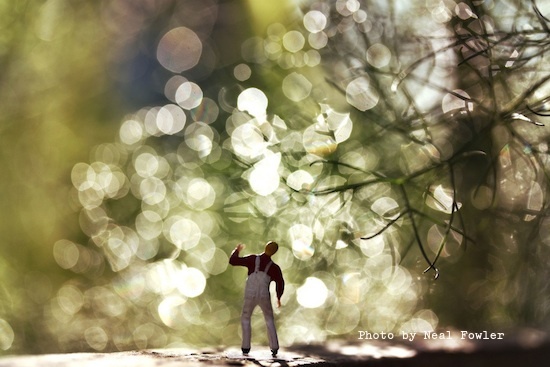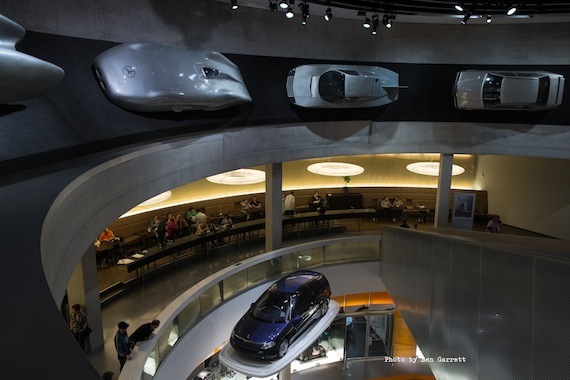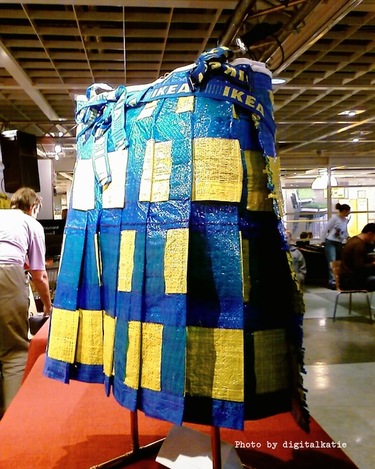When you think about the different ways that Corporate Social Responsibility (CSR) transpires throughout daily life, examples seen at retail will often come to mind. Such examples include the sale of green products, responsible ingredients and manufacturing claims (i.e. Fair Trade), or re-usable bags for purchase. More often than not, there is also some form of fund-raising effort present at retail to support a cause or charity. In recent years, these examples have become so ubiquitous in presence and predictable in their communication approach. So much so, that sadly they have become relatively ineffective at inspiring broader public support for the very CSR principles and causes they strive to represent. Such passive forms of corporate support for social and environmental issues are often just more information and promotional advertising. What is often missing is the added effort to actually communicate and connect with people in ways that provide an enriching experience and inspire further interest. This is where the adoption of a retail perspective and way of thinking can help.
Beyond Logic
The relationship between CSR and retail should be thought of as being more than just a distribution channel for the sale of socially responsible goods, or the platform for CSR communication and causes. Corporations should instead see it as an opportunity to connect directly with mass audience interests. Because in order to introduce change and establish new behaviors as "social norms," corporations will need to go beyond niche group or investor information needs. Corporations need to connect with people in ways that not only make "sense," and is the right thing to do for the environment and society. But felt to be emotionally relevant and of benefit to people as individuals.
Getting Real
Successful communication at retail is about inspiring response. Whether that response is defined as the sale of a product or service, or the engagement and shared advocacy for a corporation's CSR efforts. Retail allows for a level of storytelling that is immersive, multi-sensorial, and experiential. It provides real-time opportunities to understand how people relate, perceive, and respond to a corporation's CSR efforts. And can prove to be a more social way of nurturing relationships between brands and people. It is this level of emotional connection that is vital for advancing CSR.
For decades, automobile manufacturers have leveraged retail space not for selling cars, but for storytelling and engagement building purposes. This is most evident in Europe with the creation of brand cafes designed to immerse people in a brand lifestyle and story. These destinations have served a true social and retail need by offering the public a place that is first and foremost an aspirational destination/café. Second, they function as a form of brand communication and immersive experience. In Paris for example, the Champs Elysée is lined with many of these cafes interspersed amongst retailers such as Louis Vuitton, Sephora and fine dining establishments. You'll find brands such as Mercedes, Renault, and Peugeot using such retail space not as a dealership to sell cars. But to introduce people to an immersive experience about their brand.
Inspiring & Inclusive
Retail just by its physical, local presence, and service strategies, can enrich lives and even empower individuals. If you don't believe me, the next time you walk by an Apple store, take note of the customer age range. Notice how many people taking a class or sitting at the genius bar are 55+ years old? I speak from experience. Because prior to the Apple store, my parents would never attempt to fix their technology issues on their own. Rather, my brothers and I would assume the responsibility on their behalf. The retail presence of Apple has eliminated the technology fear factor and has enabled many seniors, including my parents, to feel comfortable and confidently manage such issues on their own.
Imagine what would be possible if you took an Apple-esque approach to the way a person perceives and manages their energy consumption? It should come as no surprise to find that such an experience can be far more impactful in getting people to change their energy behavior and attitudes. Versus having to read through CSR report details and data.
Feel-Good Engagement
Worldwide, the concept of re-duce, re-use, and recycle has become engrained in our social conscious. It is one of the few environmentally responsible behaviors that have gained mass level support. But notice how the practice of recycling has become associated with such a low emotional benefit to reward ratio? Most communication tactics used to promote environmentally responsible behavior has skewed towards negative emotions ranging in shock, fear, shame, and guilt. Leveraging negative emotions to influence behavior is not a sustainable long- term communication strategy. As with all tasks, perception, and how an opportunity is presented, can make all the difference in whether a person sees recycling as either a chore or empowering choice.
The recycling benefit people often receive in exchange for their extra effort, and sometimes cost, is at best a monetary incentive such as a recycling rebate for returned containers. Cynics may say that monetary rewards are the only way to get people to adopt responsible recycling behaviors. But innovative retailers have proven otherwise.
Take for example Patagonia who through their Common Threads Initiative has presented recycling not as a duty, but as an opportunity to participate in a movement. A movement that today is over 60,000 members strong. When recycling is presented in this manner, it is no longer perceived as a chore, but a conscientious choice people make to be part of an inspired community.
There is also IKEA who in March 2007 introduced a bag campaign designed to wean their customers off of plastic bags in favor of re-usable bags for purchase. IKEA donated campaign proceeds of up to $1.75 million to American Forests, the nation's oldest non-profit citizens conservation organization. What is even more impressive is how IKEA used such policy change as an opportunity to leverage design as a tool for inspiring positive behavior change. Rather than just producing re-usable bags, they designed a bag that is iconic, smart, and consistent with their brand. IKEA has proven that recycle and re-use is not only responsible - but can be an opportunity for personal expression, creativity, and fun.
Communication inspired by innovative retailing practices warrants greater consideration and emulation by those seeking to build broader CSR support. Retail is more than commerce and the sale of goods and services. Innovative retailers, especially those with a brick and mortar presence, approach communication at retail as an art, science/psychology, and opportunity to build relationships directly with people. The most innovative retailers understand how to get people directly engaged with abstract concepts and ideals long before a sale or transaction. Whether that concept or ideal is a brand, or even a corporation's CSR commitments.
Special thanks to Neal Fowler, Ben Garrett, Craig Rodway and digitalkatie for use of their photos.




